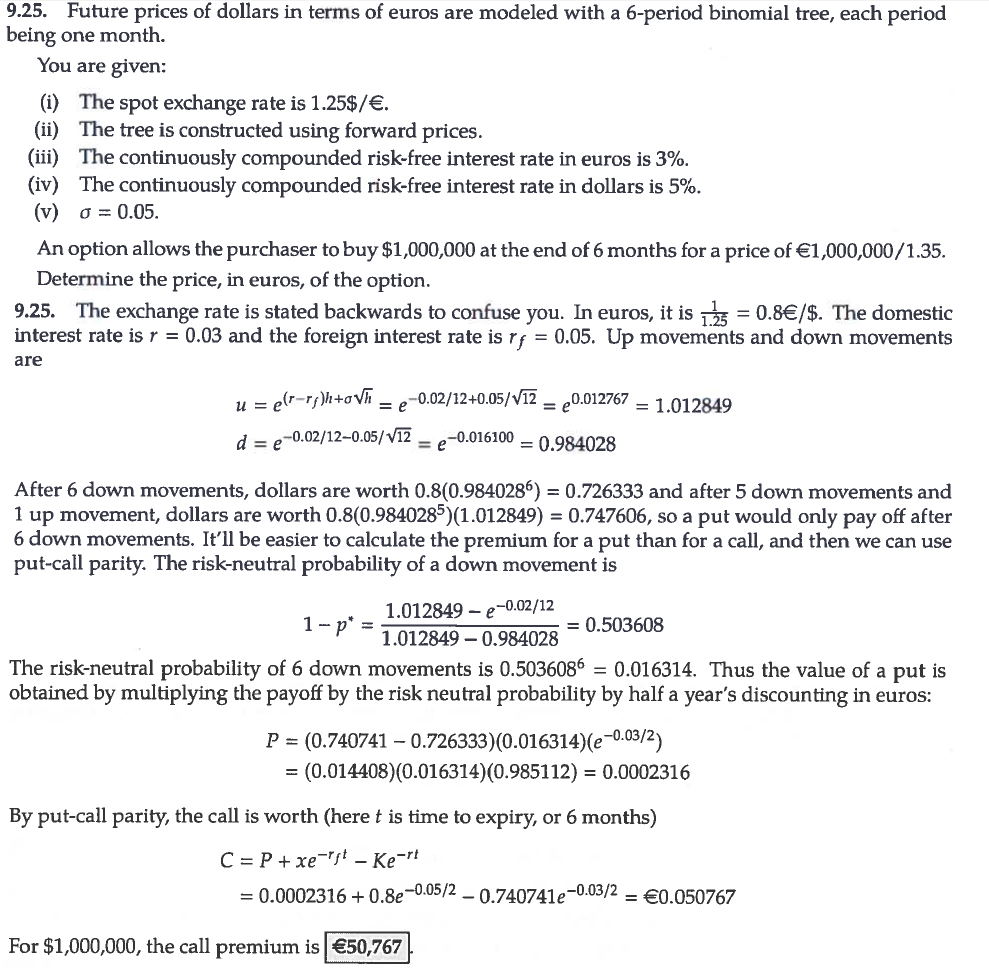I tried solving the below problem without knowing the shortcut of thinking about this in terms of a put versus a call. I can't seem to arrive at the correct answer using my method and I'm wondering where I'm going wrong.
$u = e^{(0.03 - 0.05)/12 + 0.05\sqrt{1/12}} = 1.012848937$
$d = e^{(0.03 - 0.05)/12 - 0.05\sqrt{1/12}} = 0.984028496$
$p^* = \frac{1}{1 + e^{0.05\sqrt{1/12}}} = 0.496391623$
The call pays off at nodes: $u^6, u^5d, u^4d^2, u^3d^3, u^2d^4, u^1d^5$.
The desired price is then:
$\big[(0.8u^6 - 1.35^{-1}){p^*}^6(1 - p^*)^0 + (0.8u^5d^1 - 1.35^{-1}){p^*}^5(1 - p^*)^1 + (0.8u^4d^2 - 1.35^{-1}){p^*}^4(1 - p^*)^2 + (0.8u^3d^3 - 1.35^{-1}){p^*}^3(1 - p^*)^3 + (0.8u^2d^4 - 1.35^{-1}){p^*}^2(1 - p^*)^4 + (0.8u^1d^5 - 1.35^{-1}){p^*}^1(1 - p^*)^5\big]$
$= 0.005760287$, multiplied by the discount factor $e^{-0.03 \cdot 0.5}$ and $\$1,000,000$ to arrive at $5,760.28$ euros.

